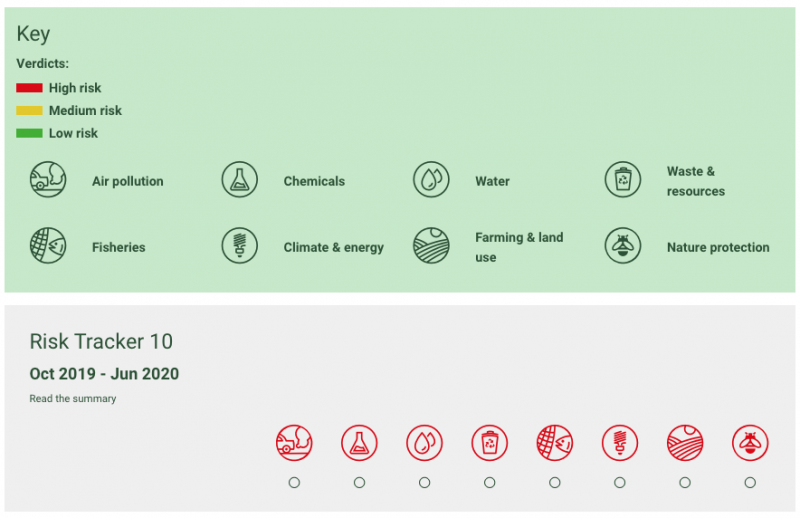Brexit risk to waste and resources increasing, says Greener UK
The risk posed to the waste and resources sector by Brexit has increased over the last few months, with the UK falling further behind EU standards and ambition, according to Greener UK’s latest Brexit Risk Tracker.
Greener UK, a coalition of 13 major environmental organisations co-ordinated by think tank Green Alliance, has been tracking the progress of Brexit and the risk posed to environmental protections since June 2017, with the latest update making for grim reading as the end of the Brexit transition period in December approaches.
Released on Friday (19 June), the Risk Tracker labels the waste and resources sector at ‘high risk’ over the potential impact of Brexit, with that risk continuing to increase.

It now seems unlikely that any headline targets from the CEP, including a 65 per cent recycling rate by 2035, will be transposed into UK law by the EU’s July deadline.
Further consultations on elements of the 2018 Resources and Waste Strategy, including on an EPR scheme for packaging, a deposit return scheme (DRS) for drinks containers and recycling consistency, have been delayed, along with the revision of the 2013 National Waste Prevention Plan, which was due in 2019.
The government has also delayed the introduction of its ban on plastic straws, stirrers and cotton buds until October 2020 to allow businesses more time to adjust while the Covid-19 pandemic continues.
The Covid-19 crisis has, of course, complicated matters, causing unprecedented disruption to public life – even the passage of the government’s landmark Environment Bill has been suspended due to the crisis and is not due to enter committee stage until September.
Greener UK’s Risk Tracker states that the risks facing the UK’s resources and waste sector are being ‘exacerbated’ by the pandemic, but that these risks were ‘evident before the coronavirus pandemic’.
Nevertheless, Greener UK has found that the Environment Bill has been ‘significantly strengthened’ by the government, with a new framework for legally-binding targets and the extension of the Office for Environmental Protection’s (OEP) remit over climate law both introduced. However, the Bill remains delayed and the OEP’s board and budget is set to fall under ministerial control, casting doubts over its independence.
While the UK delays, the EU is moving further ahead on waste and resources matters. It has introduced its Single Use Plastics Directive, rejecting calls to delay, while releasing its Circular Economy Action Plan in March, including ambitious measures such as a ban on in-built product obsolescence, introducing the ‘right to repair’ faulty products and restricting the use of single-use products.
The UK’s chemicals sector also remains at high risk, with the UK Government confirming in February that it would not seek associate membership of the European Chemicals Agency (ECHA) or to participate in the EU REACH regulatory framework for chemicals.
Crucially, this could prevent the UK from accessing the ECHA’s chemicals database, leaving a UK database essentially empty for two years until companies deliver the required safety data for their chemicals, with the lack of data potentially making it difficult for the UK to implement controls on hazardous chemicals.
Commenting on the Brexit Risk Tracker, Sarah Williams of the Greener UK coalition said: “For all the government’s good intentions, it has still not committed to maintain our existing high standards in either domestic law or trade negotiations. Without urgent action, it will be harder to enforce environmental laws in January than it is now.
“Ministers have promised again and again that our environment will not be compromised. From the food on our plates to the products on our shelves, time is running out to prove it.”
You can view Greener UK’s latest Brexit Risk Tracker on the Greener UK site.










